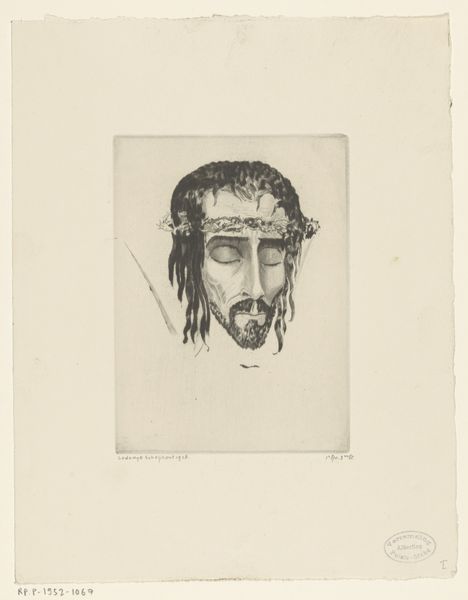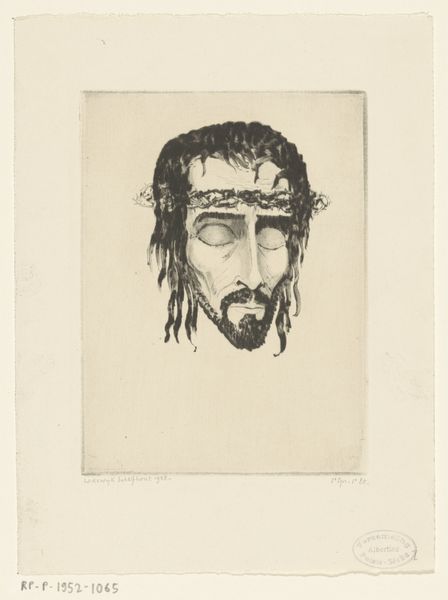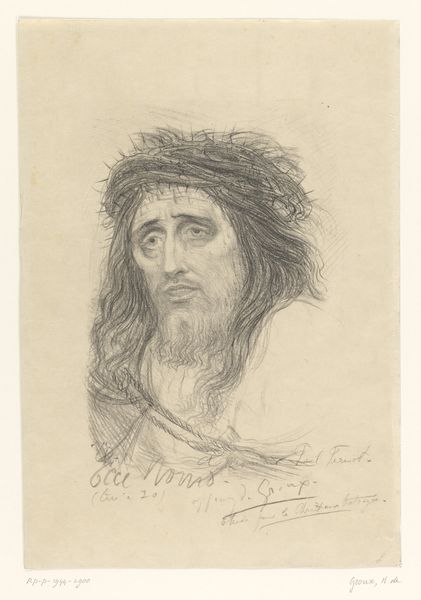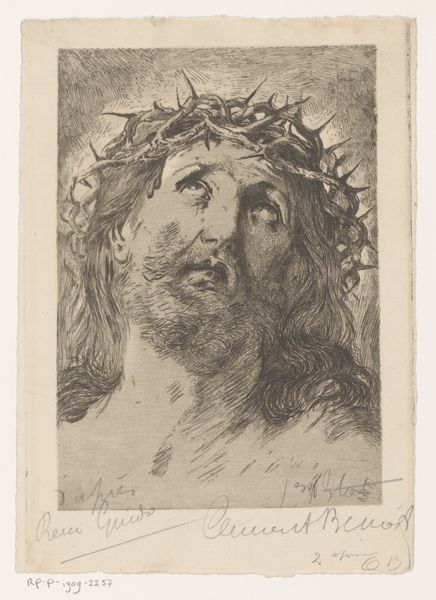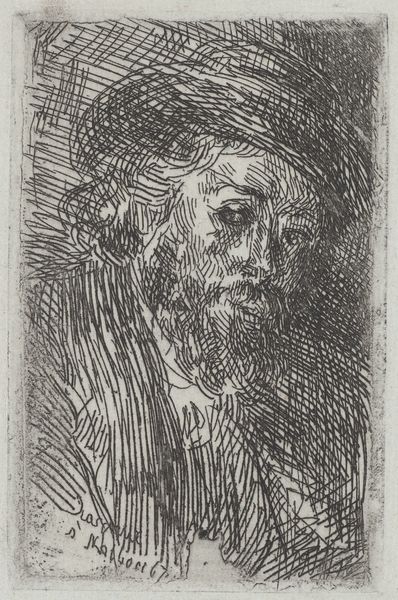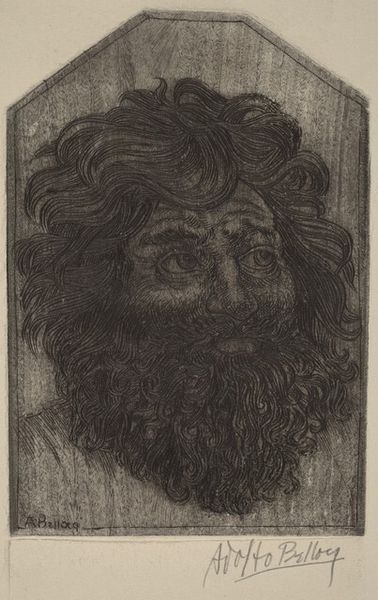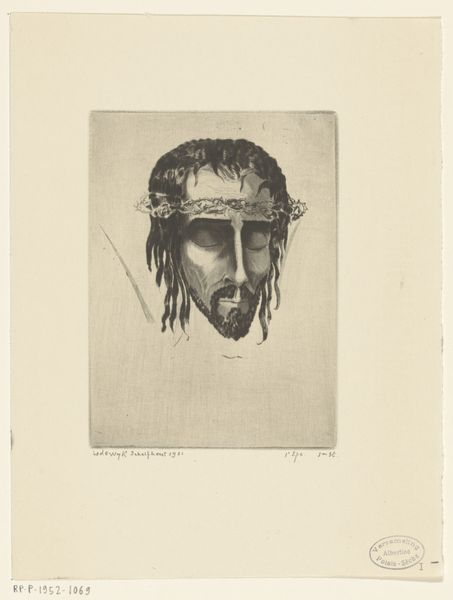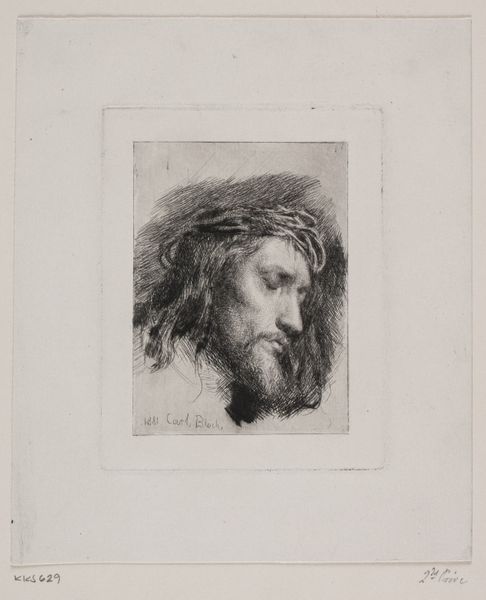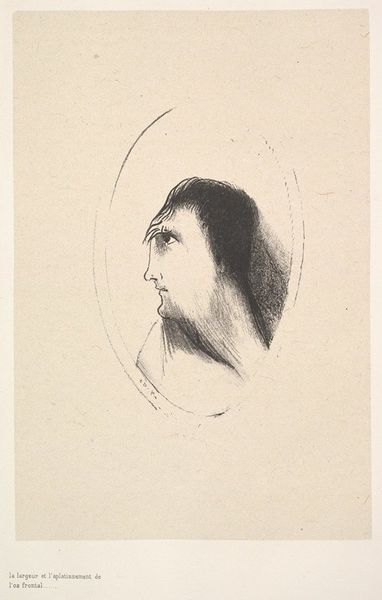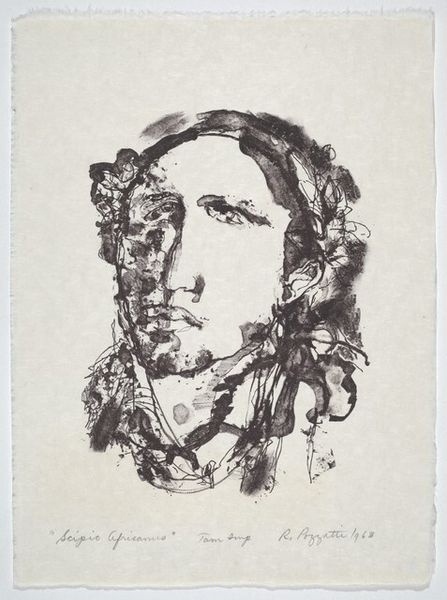
print, ink
#
portrait
# print
#
figuration
#
ink
Copyright: National Gallery of Art: CC0 1.0
Curator: Looking at "Numa Pompilius", a 1963 print by Rudy Pozzatti, one immediately gets a sense of the artistic milieu of that time. It’s a depiction rendered in ink on paper, showing a figure with remarkable expressive qualities. Editor: My initial reaction is... turmoil. The frenetic energy of the inkwork, the swirling lines around the subject’s face... it almost feels like a visual representation of inner chaos. There's an intensity that pulls you right in. Curator: Pozzatti created this piece during a period of intense political and social change, after all. "Numa Pompilius" alludes to the second king of Rome, traditionally known for his wisdom and piety. In the '60s, invoking such figures served various purposes. Here, it speaks to leadership during times of uncertainty. What do you make of the title and the subject’s implied identity, in connection to that unease? Editor: Knowing it represents a king known for wisdom offers another lens, even if the artwork's frantic aesthetic contradicts those expectations. Perhaps it is intended as an interrogation of those qualities; is the frantic line work illustrating turmoil under the surface, hinting at instability beneath a veneer of composure? It feels relevant in considering who occupies positions of power. Are we questioning how these historic roles have been viewed through the lens of contemporary ethics? Curator: Precisely. Institutions play a large role here. How Pozzatti renders this imagined depiction affects how that role could be regarded, as does the role of printmaking, at the time, in rendering such powerful people commonplace in domestic contexts, bringing political concepts into private life. Editor: The medium itself – ink on paper – becomes incredibly significant, reflecting the accessibility of revolutionary thought. It's more than just a portrait. It's a loaded symbol, rife with tensions relevant to contemporary narratives. We must consider who held the power and what perspectives remain absent. Curator: A fitting thought to end on, that speaks to Pozzatti's nuanced representation here, even so many years later. Editor: Indeed. Its ambiguities open possibilities of interpretation, and of prompting reflection, for any observer.
Comments
No comments
Be the first to comment and join the conversation on the ultimate creative platform.
